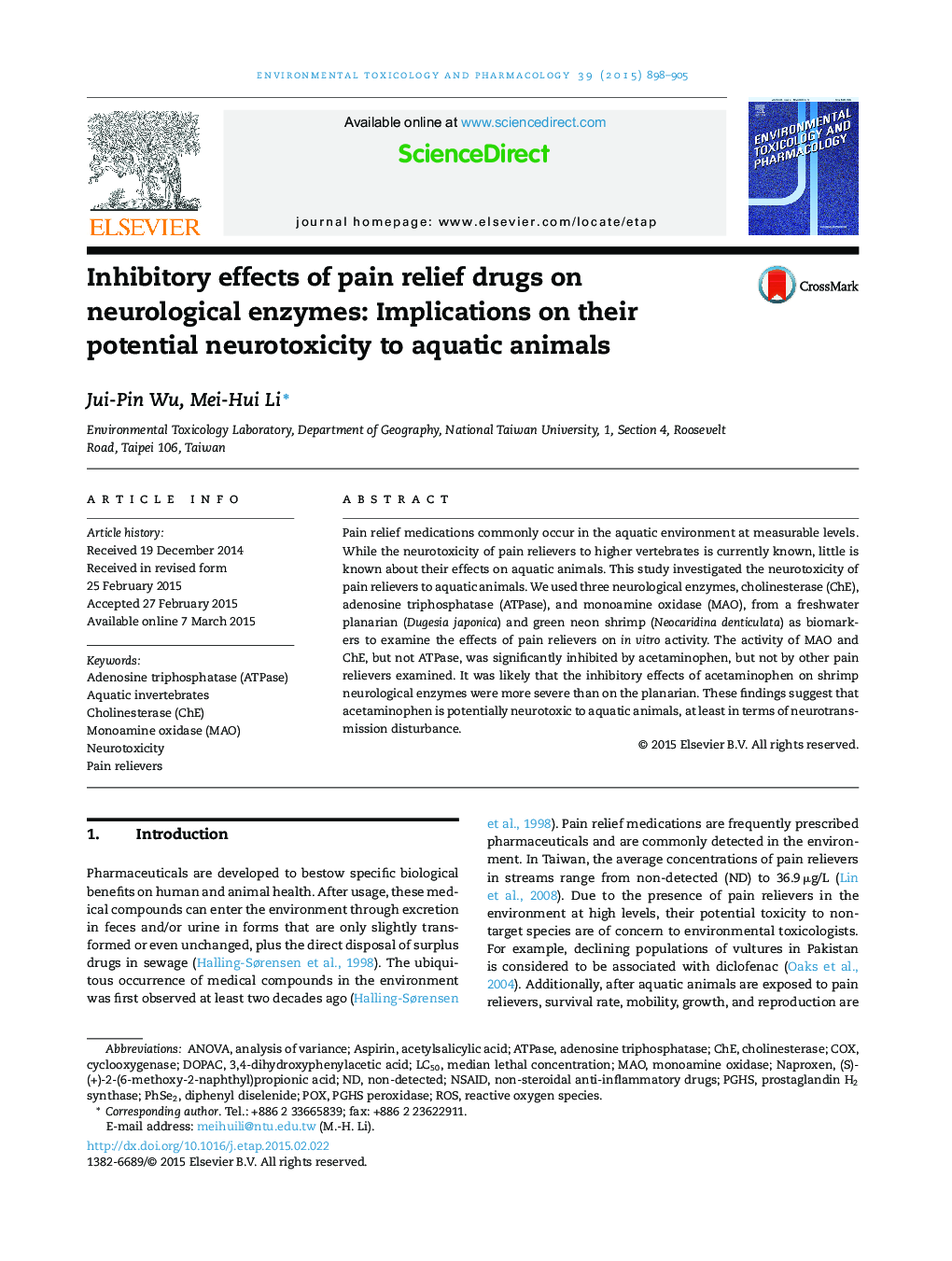| کد مقاله | کد نشریه | سال انتشار | مقاله انگلیسی | نسخه تمام متن |
|---|---|---|---|---|
| 5848858 | 1130674 | 2015 | 8 صفحه PDF | دانلود رایگان |
Pain relief medications commonly occur in the aquatic environment at measurable levels. While the neurotoxicity of pain relievers to higher vertebrates is currently known, little is known about their effects on aquatic animals. This study investigated the neurotoxicity of pain relievers to aquatic animals. We used three neurological enzymes, cholinesterase (ChE), adenosine triphosphatase (ATPase), and monoamine oxidase (MAO), from a freshwater planarian (Dugesia japonica) and green neon shrimp (Neocaridina denticulata) as biomarkers to examine the effects of pain relievers on in vitro activity. The activity of MAO and ChE, but not ATPase, was significantly inhibited by acetaminophen, but not by other pain relievers examined. It was likely that the inhibitory effects of acetaminophen on shrimp neurological enzymes were more severe than on the planarian. These findings suggest that acetaminophen is potentially neurotoxic to aquatic animals, at least in terms of neurotransmission disturbance.
Journal: Environmental Toxicology and Pharmacology - Volume 39, Issue 2, March 2015, Pages 898-905
